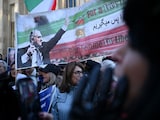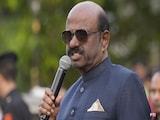Medical interns and final-year MBBS students can be deployed in the fight against the novel coronavirus, the centre said Monday afternoon, as it announced a series of measures to increase availability of human resources.
Interns can be used for Covid management duties and final-year students can be deployed in tele-consultation roles and to monitor mild cases, the Prime Minister's Office said in its statement.
Both interns and students can only work under supervision of senior doctors or faculty members.
Similarly, nurses with B.Sc or GNM (General Nursing & Midwife) degrees or certifications can be deployed on Covid duties, so long as they too are supervised by senior doctors or nurses.
The centre has also postponed, for a second time, the NEET-PG medical entrance exam. It will now not be held before August 31, and candidates will be given a month's notice before it is held.
It was first postponed last month "in light of the surge in COVID-19 cases".
The centre said this will make qualified doctors and medical students available for Covid duties.
In addition, medical personnel completing 100 days of Covid duties will get the Prime Minister's Distinguished Covid National Service Samman and given priority when applying for government posts.
These decisions come as India faces a devastating new wave of coronavirus infections - one which has left an already-battered healthcare system on its knees.
Hospital beds are in short supply, as are medicines and oxygen supplies. And doctors and nurses, who've been fighting the virus for over a year now, have been left overworked and traumatised.
On Saturday, a doctor was among 12 people who died at Delhi's Batra Hospital after the facility ran out of medical oxygen - for the second time in the space of a week.
Separately, a resident doctor at another hospital in the city died by suicide due to severe stress.
The tsunami of new Covid cases appears never-ending; this morning India reported over 3.68 new cases and more than 3,400 deaths in the previous 24 hours.
The centre has been heavily criticised for failing to anticipate and plan for the second Covid wave, with political parties left free to hold rallies and roadshows - attended by tens of thousands in violation of Covid safety protocols - ahead of the elections in Bengal and four other states.
Some experts have also pointed to mass gatherings at religious events, like the mega Kumbh in Haridwar, and general laxity in following Covid norms, as reasons for the frightening spike in cases.















